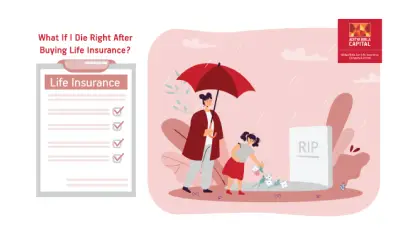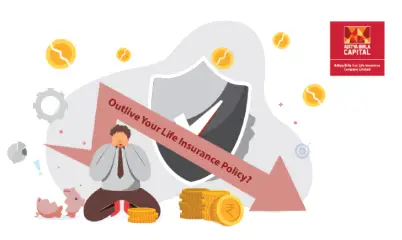What does life insurance cover?
Read Aloud


Get Guaranteed Returns After a Month^
Unlock the Power of Smart Investment!


-
 Table of Contents
Table of Contents- How Life Insurance Works
- What Deaths Does Life Insurance Cover?
- What is Life Insurance Used For?
- Expenses Beneficiaries Can Help Cover Using the Life Insurance Death Benefits
- How Quickly Does Life Insurance Pay Out?
- What Is Not Covered By Life Insurance?
- Do Life Insurance Riders Offer The Same Coverage?
- Conclusion
How Life Insurance Works
What Deaths Does Life Insurance Cover?
What is Life Insurance Used For?
Expenses Beneficiaries Can Help Cover Using the Life Insurance Death Benefits
How Quickly Does Life Insurance Pay Out?
What Is Not Covered By Life Insurance?
Do Life Insurance Riders Offer The Same Coverage?
Conclusion
About Author
FAQs on Life Insurance Policy
for Salaried Individuals¹
Now Playing
from Life Insurance

What Does Life Insurance Cover?
00:00
00:00
Now Playing
What Does Life Insurance Cover?
What Does Life Insurance Cover?
from Life Insurance
-
Disclaimer
ABSLI Nishchit Aayush Plan. This is a non-linked non-participating individual savings life insurance plan. UIN No 109N137V06
^ - Provided 0 year deferment & monthly income frequency is chosen at the time of inception of the policy.
~ Male- 25 yrs invests in ABSLI Nishchit Aayush Plan with Level Income + Lumpsum Benefit. He chooses premium payment term 10 yrs , policy term 40 years, benefit option -Long Term Income, Sum Assured 7 times of Annualized Premium and Deferment Period 0 years. Annualized Premium is ₹1,20,000 (Exclusive of GST.). Annual Income of ₹45,900 (45,900*40=18,36,000) + Maturity Benefit (₹16,80,000)= ₹35,16,000
ADV/8/23-24/1486
Subscribe to our Newsletter
Get the latest product updates, company news, and special offers delivered right to your inbox
Thank you for Subscribing
Stay connected for tips on insurance and investments

 Home Loans
Home Loans
 Personal
Loans
Personal
Loans
 SME Loans
SME Loans
 Business Loans - Udyog
Plus
Business Loans - Udyog
Plus
 Loan against Securities
Loan against Securities
 Mutual Funds
Mutual Funds
 Stock and
Securities
Stock and
Securities
 Portfolio
Management Services
Portfolio
Management Services
 Pension Funds
Pension Funds
 Life
Insurance
Life
Insurance
 Health
Insurance
Health
Insurance
 Wellness
Solutions
Wellness
Solutions
 Pay Bills
Pay Bills
 Pay anyone
Pay anyone
 Pay on call
Pay on call
 Payment
Lounge
Payment
Lounge
 ABC Credit
Cards
ABC Credit
Cards

 1800-270-7000
1800-270-7000










